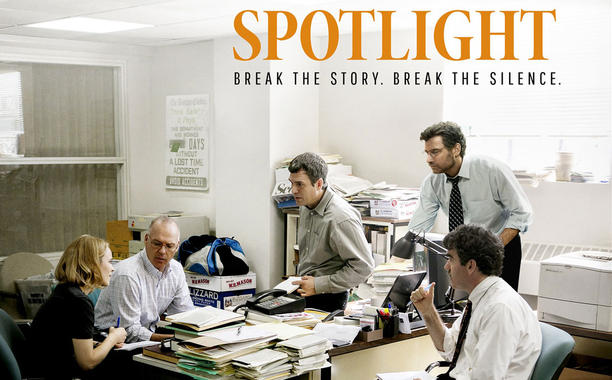The world has begun to calm down after the events of 2012’s The Avengers and Steve Rogers/Captain America (Chris Evans) will finally have a chance to explore the brave new world of the 21st century, after having been frozen in ice since the end of the Second World War.
In theory.
In Captain America: The Winter Soldier, Rogers is instead embroiled in a net of political intrigue and espionage that quickly takes a deadly turn. Unsure who to trust within the government organization S.H.I.E.L.D., he must rely on super-spy Black Widow/Natasha Romanoff (Scarlet Johansson) and his new ally Sam Wilson, also known as Falcon (Anthony Mackie), to help him stop yet more mass destruction.
While mass destruction and terrorist threats are far from new for Marvel, this film feels particularly gritty, with lots of jittery hand-to-hand fighting, and machine-gun car shootouts.
Mixed in with the action-fueled battle porn lie some more significant plot points which link Steve Roger’s latest story to his WWII past, fighting Nazis and Hydra with his Howling Commandos team and the S.H.I.E.L.D. founders Howard Stark and Peggy Carter, and which question that Rogers will choose to do in the future.
While The Winter Solider is well-constructed, it falls into the same trap that the first Thor film did; in the rush to set up the next big Avengers movie with background information and supporting characters, a number of things get lost in the flood: in this case, Captain America himself.
The most promising scenes in The Winter Soldier all hint at more character development for Steve Rogers, though these promises generally go unfulfilled in this movie. Captain America is one of the most eminently likable superheroes in Marvel’s canon, but if not given enough complex emotional and political situations to deal with he can come off as a bit flat, in the same way that Man of Steel failed to give Clark Kent much of a personality.
Throughout the movie Steve Rogers seems to desperately want to say something, want to comment on the socio-political reality of this new world, and the morality of what he was now being asked to do. On most occasions, instead of being given the opportunity to say something, the Star Spangled Man is instead too busy dodging knife attacks.
Thus, when Rogers does speak his mind, he speaks it so well that Sam Wilson quips, “Did you have that written down?”
Though Marvel has begun to gather a reputation for being rather more open-minded and progressive than other comic book-movie empires, one wonders whether they are simply afraid to let Steve Rogers comment on politics for fear that his character, or at least his character as he was portrayed in most comic books since the character’s creation in 1941, would be too progressive for even their tastes.
In the Golden Age Captain America comics, Steve Rogers was born into a poor Irish-Catholic family in East Side New York during the Great Depression, going on to study art among the progressive, artistic Cultural Front. This leads Rogers to become explicitly pro-New Deal and anti-corporate corruption, and his early comics are dominated by progressive political themes, such as issues in which he fights tax-evading industrialists who rip off their workers.
Since then, however, Marvel has backed away from this type of dangerous left-wing politics, and has begun de-politicizing Captain America.
With The Winter Soldier, Steve Rogers gets about as close to political commentary as he will likely be allowed to in the Marvel Cinematic Universe. But it is still not quite enough.
Overall, the second Captain America solo film is a strong depiction of the patriotic Captain’s personal and professional relationships, and a wholly entertaining action movie, but it feels, in some ways, incomplete.
Hopefully, the threads carefully developed in Winter Soldier will be developed into more fully fledged themes when Captain America returns in The Avengers: Age of Ultron.
Captain America: The Winter Soldier, rated PG-13, is in theaters right now. And remember, this is a Marvel movie, so staying through the very end of the credits is a must.


